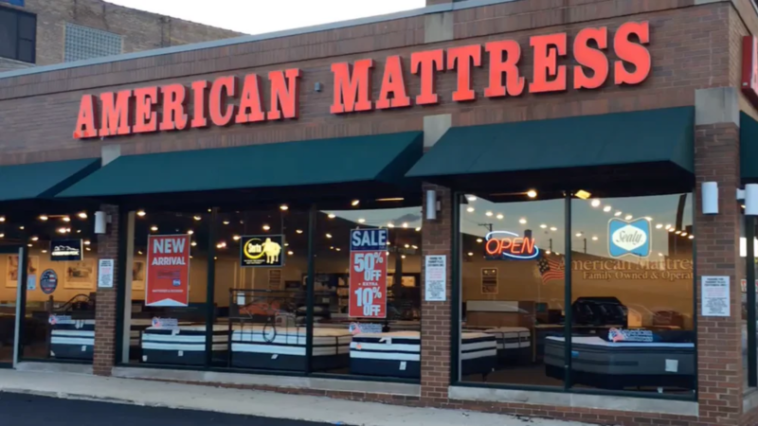One of the Midwest’s most recognizable mattress retailers has filed for Chapter 11 bankruptcy, marking the latest in a growing line of pandemic-era winners now facing post-COVID fallout.
American Mattress, a company with roots stretching back to 1988, filed for bankruptcy protection in Delaware on July 6. The company, officially operating as AFM Mattress Company LLC, listed assets and liabilities between $1 million and $10 million in court documents. The filing includes around 100–199 creditors, though the company says it still expects to have funds available to pay some of them.
Despite the legal and financial maneuvering, American Mattress hasn’t shut its doors. As of now, its stores are still operating, its website is accepting orders, and its social media accounts are quietly pushing 4th of July promotions with no mention of the bankruptcy filing.
The silence isn’t accidental. Chapter 11 isn’t liquidation—it’s reorganization. And for businesses like American Mattress, that often means trying to keep the lights on while negotiating with creditors, restructuring operations, or hoping for a cash injection.
But optimism only goes so far when demand dries up.
Like many furniture and mattress sellers, American Mattress saw a surge in sales during the early pandemic years. Consumers stuck at home poured money into comfort beds, sofas, and home office gear. What no one could quite predict was how sharply those sales would reverse.
That spike wasn’t a trend. It was a one-time sprint that pulled future purchases into the present. And once people upgraded their furniture, they weren’t coming back. For mattress companies, which already operate in long buying cycles, that meant a brutal slowdown with no clear path to recovery.
American Mattress was built on a founding story of rebellion—two employees from a local family-run mattress company started their own business after the original was swallowed by corporate ownership. They wanted a more personal, customer-first approach, and for decades, it worked. The brand became a familiar name in Chicago, Indianapolis, Fort Wayne, and Florida, carving out space in a fiercely competitive market.
But now, even the strongest origin story can’t shield a company from financial reality. American Mattress hasn’t shared a plan for how it intends to dig out. There’s no mention of restructuring details, new financing, or strategic pivots in the bankruptcy paperwork—at least not yet.
For customers, the short-term message is clear: orders are still being fulfilled, stores are still open, and the brand hasn’t vanished. But the filing is a red flag. And if history is any guide, Chapter 11 is often a fork in the road. Some businesses come out leaner and survive. Others don’t.
What happens next depends not just on creditors or courts, but whether a company built for a different retail era can adjust fast enough to make itself matter again.

